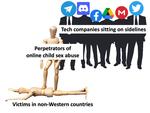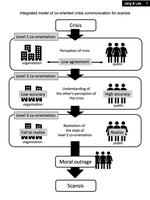👋 Hi!
I’m an Assistant Professor of Media Law and Ethics in the department of Journalism, University of Massachusetts Amherst. I’m affiliated with the Global Technology for Social Justice Lab (GloTech) and the Center for Information, Technology, and Public Life (CITAP). I co-organize the junior tech scholar group with the Public Technology Leadership Collaborative (PTLC).
I study AI systems and platform power, examining their implications for journalism, media, and democracy. My work also explores how powerful actors—media organizations, institutions, and governments—can better support the public’s relationship with technology.
Selected Interviews and Mentions
- (CNN, 2024) Interview with Jang on martial law in South Korea
- (Bloomberg, 2024) The end of passive democracy
- (Wired, 2024) Two Upstart Search Engines Are Teaming Up to Take on Google
- (The Washington Post, 2024) Americans must prepare for another round of election denial
Opinion pieces
- (Zeteo.com, 2024) South Korea: The deeper story behind the unrest
- (Bluesky, 2024) South Korea Is Fighting for Democracy Again—And the World Needs to Know
- (The Diplomat, 2024) South Korea’s Press Freedom Under Fire
- (Tech Policy Press, 2022) Transnational platform ecosystems harm children and women outside the West
- (Slate, 2021) AI chatbot systems can harm users in several ways
-
Ph.D. in Media and Communication
University of North Carolina at Chapel Hill, USA
-
M.A. in Communication
Seoul National University, South Korea
-
B.A. in Media and Mass Communication
Korea University, South Korea
-
B.B.A in Business Administration
Korea University Business School, South Korea
Blog
Research
Talks
Skills
Python, SQL, R | SPSS, STATA, Qualtrics, MTurk
survey, experiment, content analysis, statistical analysis
interview/focus-group, textual analysis, grounded theory









